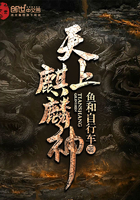Armed with death from the ancient society of Rome, it for a long while excited the hatred and fear of the people.At last, by force of martyrdoms and persecutions, the religion of Christ penetrated into the conscience and the soul; it soon had kings and armies at its orders, and Constantine and Charlemagne bore it triumphant throughout Europe.Religion then laid down her arms of war.It laid open to all the principles of peace and order which it contained; it became the prop of Government, as it was the organizing element of society.Thus will it be with liberty.In 1793 it frightened people and sovereigns alike; then, having clothed itself in a milder garb, IT INSINUATED ITSELF EVERYWHERE INTHE TRAIN OF OUR BATTALIONS.In 1815 all parties adopted its flag, and armed themselves with its moral force--covered themselves with its colors.The adoption was not sincere, and liberty was soon obliged to reassume its warlike accoutrements.With the contest their fears returned.Let us hope that they will soon cease, and that liberty will soon resume her peaceful standards, to quit them no more.
"The Emperor Napoleon contributed more than any one else towards accelerating the reign of liberty, by saving the moral influence of the revolution, and diminishing the fears which it imposed.
Without the Consulate and the Empire, the revolution would have been only a grand drama, leaving grand revolutions but no traces:
the revolution would have been drowned in the counter-revolution.
The contrary, however, was the case.Napoleon rooted the revolution in France, and introduced, throughout Europe, the principal benefits of the crisis of 1789.To use his own words, 'He purified the revolution, he confirmed kings, and ennobled people.' He purified the revolution, in separating the truths which it contained from the passions that, during its delirium, disfigured it.He ennobled the people in giving them the consciousness of their force, and those institutions which raise men in their own eyes.The Emperor may be considered as the Messiah of the new ideas; for--and we must confess it--in the moments immediately succeeding a social revolution, it is not so essential to put rigidly into practice all the propositions resulting from the new theory, but to become master of the regenerative genius, to identify one's self with the sentiments of the people, and boldly to direct them towards the desired point.
To accomplish such a task YOUR FIBRE SHOULD RESPOND TO THAT OF THEPEOPLE, as the Emperor said; you should feel like it, your interests should be so intimately raised with its own, that you should vanquish or fall together."Let us take breath after these big phrases,--grand round figures of speech,--which, when put together, amount like certain other combinations of round figures to exactly 0.We shall not stop to argue the merits and demerits of Prince Louis's notable comparison between the Christian religion and the Imperial-revolutionary system.There are many blunders in the above extract as we read it; blundering metaphors, blundering arguments, and blundering assertions; but this is surely the grandest blunder of all; and one wonders at the blindness of the legislator and historian who can advance such a parallel.And what are we to say of the legacy of the dying revolution to Napoleon? Revolutions do not die, and, on their death-beds, ****** fine speeches, hand over their property to young officers of artillery.We have all read the history of his rise.The constitution of the year III.was carried.Old men of the Montagne, disguised royalists, Paris sections, PITTETCOBOURG, above all, with his money-bags, thought that here was a fine opportunity for a revolt, and opposed the new constitution in arms:
the new constitution had knowledge of a young officer who would not hesitate to defend its cause, and who effectually beat the majority.The tale may be found in every account of the revolution, and the rest of his story need not be told.We know every step that he took: we know how, by doses of cannon-balls promptly administered, he cured the fever of the sections--that fever which another camp-physician (Menou) declined to prescribe for; we know how he abolished the Directory; and how the Consulship came; and then the Empire; and then the disgrace, exile, and lonely death.Has not all this been written by historians in all tongues?--by memoir-writing pages, chamberlains, marshals, lackeys, secretaries, contemporaries, and ladies of honor? Not a word of miracle is there in all this narration; not a word of celestial missions, or political Messiahs.From Napoleon's rise to his fall, the bayonet marches alongside of him: now he points it at the tails of the scampering "five hundred,"--now he charges with it across the bloody planks of Arcola--now he flies before it over the fatal plain of Waterloo.















